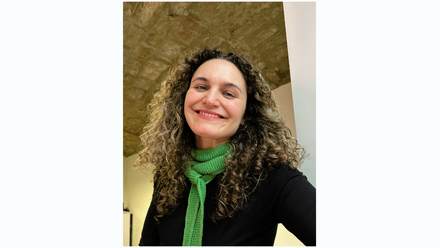Finding clients as a new translator
Marjolein Thickett was awarded a Special Commendation in the ITI Awards 2022 in the Best newcomer — freelancing category. Here she share some of the strategies she adopted for finding new business as she started out, which contributed to her winning this award.
2021 saw my first proper forays into freelance translation. I translated 350,000 words, designed and built my website, worked with six agencies and ten direct clients, become a committee member for the NWTN, a volunteer Translation Project Manager and built a strong network.
But how did I achieve all this? How did I set up as a freelance translator after more than 10 years in international sales and marketing with no ties to the translation industry?
Building a strong network
My first steps were relatively straightforward. I knew I would need a strong network and to be associated with professional organisations if I were to succeed. Sitting alone in my office and hoping and praying clients would find me, was not something I wanted to be doing. So, I joined the Institute of Translation and Interpreting, the Chartered Institute of Linguists and the North West Translator’s Network (NWTN). Joining these networks meant that I had access to regional and language groups and resources/webinars which were invaluable, especially in the early days.
The NWTN, particularly, made me feel like I was part of a community. I joined during the Covid pandemic, so I was lucky to benefit from weekly Zoom meetups. With two children under 3 at home, these online sessions were invaluable. I had a place to go for advice, to benefit from people’s knowledge and even to find work.
Focussing on direct clients
Due to Covid restrictions many of the initial agencies I contacted simply didn’t have much work, especially for Russian. What's more, the common problem of signing up with an agency, but then having to wait several months before receiving any work came into play.
So instead, I focussed on working with direct clients as I had a reasonably wide network thanks to my previous career. Early wins arrived when I became a regular translator for three companies in a large Russian telecommunications group after I contacted a colleague I had been close to when I lived in Russia.
I became certified in localisation, SEO and content marketing, and this enabled me to begin work with two more direct clients in Germany and the Netherlands. Having direct clients early on allowed me to avoid the trap of racing to the bottom of the rates ladder. In general, direct clients pay more for translations than agencies, so working with customers like this early on in my career, gave me a sense of my own value and the benefits my work could bring to my customers.
Linking in with peers
I found direct clients in a variety of ways – previous contacts/colleagues, translation forums, association networks, but above all, LinkedIn has been invaluable. Initially, I followed a few hashtags about translation (#litranslators, #xl8 for example) and engaged with enlightening and helpful content.
Over time, I started to post my own content. I wrote about blogs I had written, webinars I had watched, courses I had taken and the logistics of freelance life. I also made sure to connect with translators with similar language combinations.
To my initial surprise, the contacts I made were happy to speak to me about how they had set out, where I might gain experience and sometimes even referred work to me once we had got to know each other. Coming from a sales background, I was struck by how open and supportive the translation community is. I continue to grow my network on LinkedIn today and continually reap the rewards of new colleagues, invaluable advice and sound referrals.
The value of a website
LinkedIn has certainly been my most successful marketing tool, however I also attribute some of my success with direct clients to having a professional website. I believe a website is useful even (and especially!) for newcomers to the translation industry, as it provides credibility — a place potential customers can go if they are thinking of working with you.
Put yourself in your customer's shoes. You're looking for a translator, you've had a recommendation, or you've seen someone pop up on LinkedIn or on a recognised association's website. What's your next step? To Google them, of course! As a customer, you want to know if they're reliable and if there's any bad/good PR online you need to know about. Working with a freelancer can be great, but it can feel risky, especially if all you know about them is their name and telephone number. Having a website means your customer can research you. Do you provide the services they need? Are other customers happy with you? What accreditation do you hold? Making the selection process easy for potential clients and answering questions upfront, improves your chances of winning a project.
Embracing business networks
One opportunity often overlooked by the translation community is regional support and business networks. For some reason, we often think that as freelance translators we’re somehow not eligible or that any advice provided will not be relevant to our industry. In my view however, half the battle when starting out as a freelancer is learning the non-translation aspects of the business, such as finance, marketing and technology.
In 2021, I joined the Cumbria Growth Hub. After a review of the support on offer from them, some form filling about my business and an introductory chat, I was awarded support by the Growth Hub’s Business Start-Up Scheme (BSUS). This focused on a general marketing approach, SEO strategy, a website review and event participation. I benefitted from bi-monthly mentoring chats with a marketing expert.
I have also attended a few events and made useful contacts at my local Chamber of Commerce, so I really recommend seeing what’s on offer in your area.
But if there’s one piece of advice I can give to new translators, whether you’re straight out of university or making a career change, it’s to connect with your peers. It is one of the best ways to get your new career off the ground.






